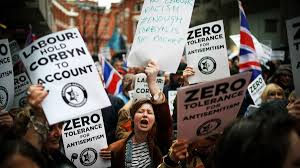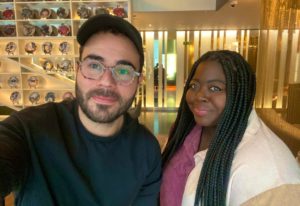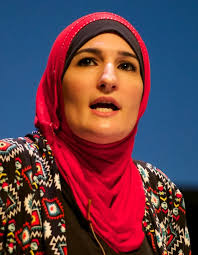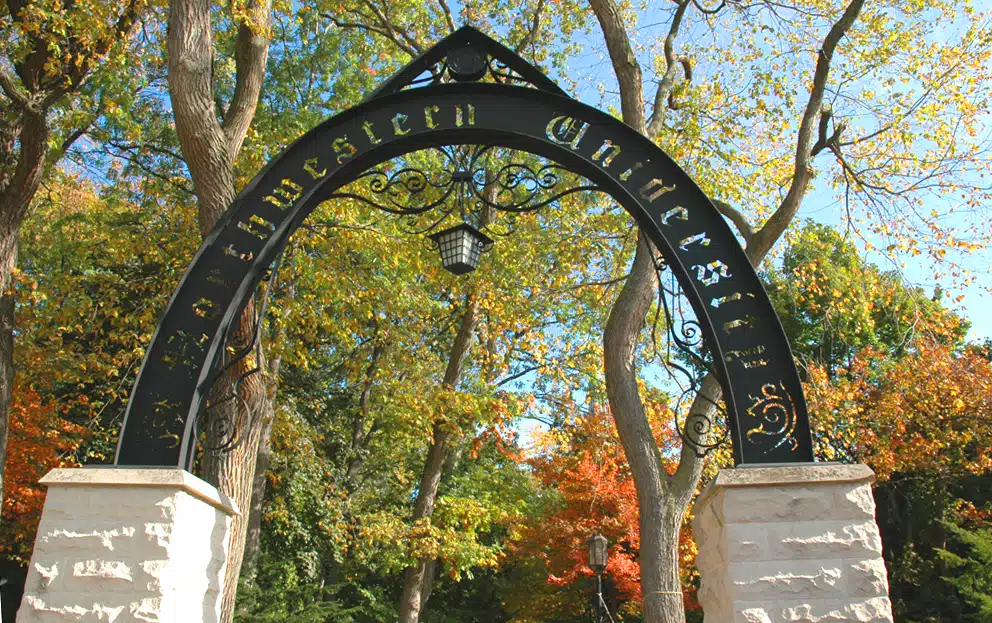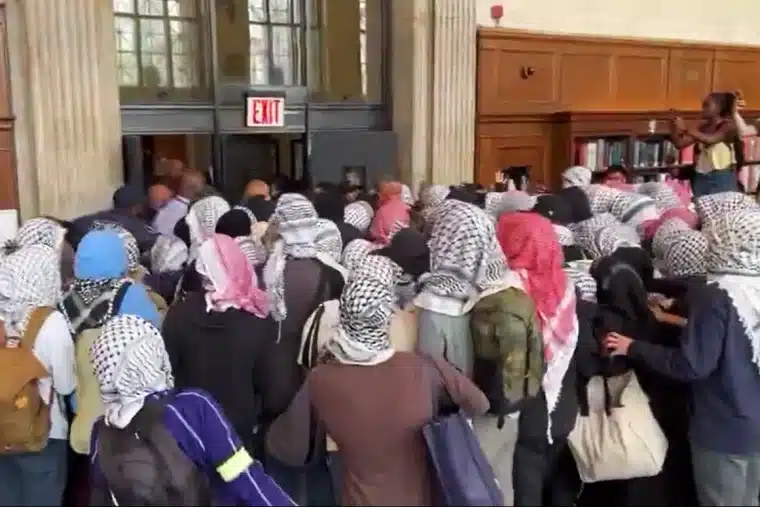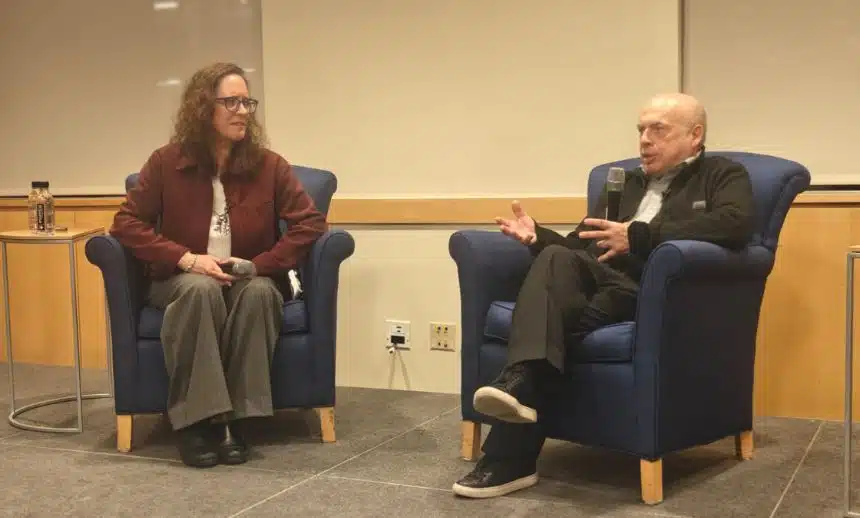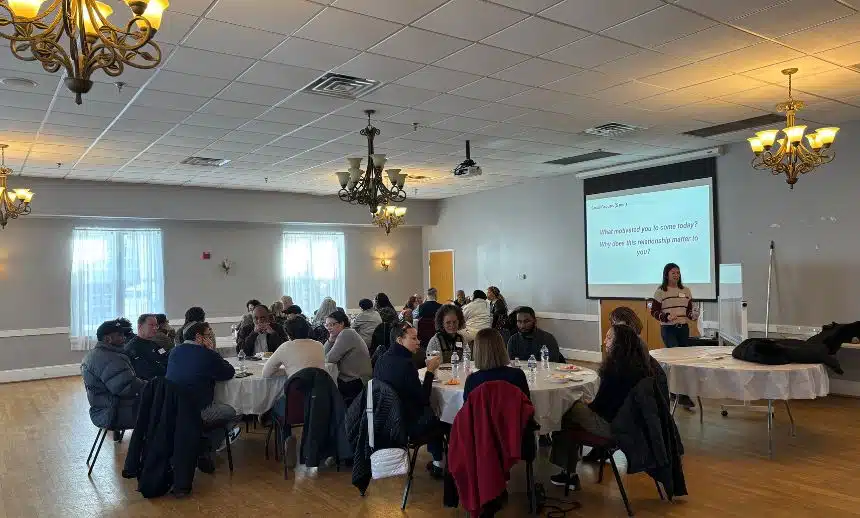
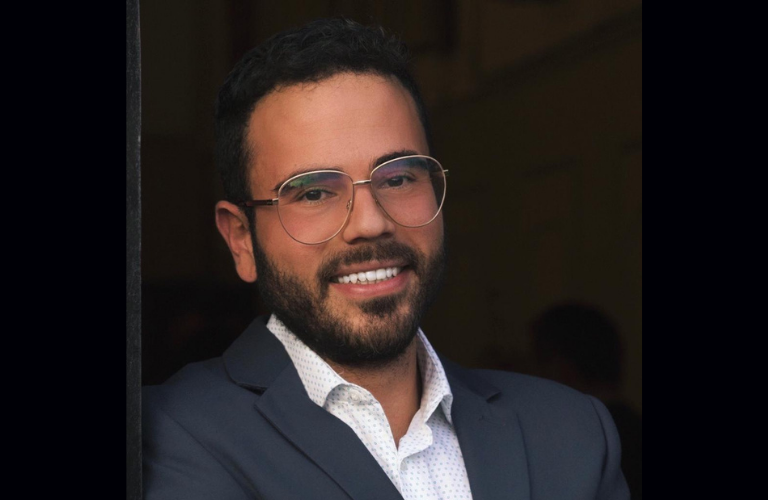
Interview: Hen Mazzig on Anti-Semitism and Cancel Culture
Hen Mazzig is an international speaker, writer, and activist who combats anti-Semitism around the globe. Born and raised in Israel, he was a humanitarian officer in the Israel Defense Forces before embarking on speaking tours to educate students around the world about his native country. In the U.K. in particular he encountered unimaginable hostility to his pro-Israel and Jewish identity. CAM spoke to Mazzig about how his past experiences on the frontlines of campus anti-Semitism have impacted his work in engaging new allies in the fight against Jew-hatred today.
In October of 2016 one dramatic event changed Hen Mazzig’s life forever. Mazzig travelled to London, England, to speak to the University College London (UCL) and King’s College London (KCL) Israel societies with the help of CAMERA on Campus. On a cold evening in central London he was greeted by an aggressive mob of virulently anti-Israel students. Rumors of a protest had circulated in the days preceding, but no one expected things to get quite as bad as they did that evening. “We as a community have communal trauma that we’ve been dealing with for hundreds of years, but also more recently,” Mazzig says, in reference to the event. Members of student Palestinian societies from across London banded together in an enormous protest against Mazzig. They stormed the event’s venue and chased attendees away through the halls of UCL.
Jewish students were forced to barricade themselves into a room on the other side of the campus with Mazzig in order to hear him speak. “Here I am, in a room of young Jewish students and hundreds of people are outside trying to get in the doors, breaking the windows, coming in to get to a group of Jews, young Jews.” Eventually, the Jewish students had to be escorted out of the university by police for their own safety. Many of them were left with both emotional and physical scars.
The incident had an impact on the British-Jewish community at-large. Mazzig himself remains horrified by the events that occurred that evening. “This happened just four years ago in Europe. They wanted to silence me. They didn’t want me to speak. This is beyond troubling.”
Four years later, Mazzig has remained deeply engaged with British Jews. How does Mazzig perceive the issue of anti-Semitism in the country? “What happened that evening [at UCL] really symbolized a shift in the U.K. where anti-Semitism came into the open and people were shameless. The element of being an anti-Semite was no longer something to hide.”
Open anti-Semitism was widely perceived to have become a feature of British life under the tenure of former Labour party leader Jeremy Corbyn. What is Mazzig’s sense of anti-Semitism in Britain today, as Corbyn’s normalization of Jew-hatred wanes? (Corbyn was defeated in Britain’s December 2019 election and he subsequently stepped down as leader of the Labour party.)
“Just in my recent visit [to London] I saw that many people, thought leaders and celebrities, people that normally would not be as open and vocal about anti-Semitism, have now realized that something is changing. I do have a lot of hope for the U.K. because Jeremy Corbyn did not win.” Mazzig explains that the British public was roused by the issue of Jew-hatred and voted against Jeremy Corbyn in the general election. “I think anti-Semitism gives memories of the Holocaust and reminds them that the Nazis didn’t win.”
Today, in the age of social media activism, Mazzig is now focused on educating popular influencers about Jewish issues. In particular, he reaches out to activists who are ignorant about Jewish history and attempts to build bridges in order to gain new allies. “One of the people that I met with was Stephanie Yeboah,” Mazzig says. Yeboah is a blogger and model who was hired to promote diversity at the fashion magazine Grazia earlier this year. Shortly afterwards, however, she was fired for making jokes about the Holocaust on Twitter. One Tweet was a quote from Family Guy which said: “AUSCHWITZ Gas Chamber Music LMAO SMH.”
Mazzig felt that she spoke out of a place of ignorance rather than with malicious intent. He was determined to open her mind. “She told me she had no idea that Jews were not from Europe. She did not know that Jews were living all over the world.” Mazzig wanted to educate Yeboah on Jewish history, anti-Semitism, and Israel. “I thought to myself, if she was aware that Jews didn’t only suffer violence in Europe—not taking away the importance of the Holocaust because it’s the biggest modern trauma and genocide we face, but focusing also on the trauma we faced everywhere we lived—that would be a huge step forward.”
The meeting went well, and the two are now friends. “Stephanie said, “I really want to learn and I really want to be educated,” so we sat in London in my hotel room, and we were watching clips by Rabbi Sacks together. For example, she always heard about Spanish inquisition but never knew it had anything to do with Jews. Most of the time she was in tears because she felt so horrible for what she said.”
Yeboah is now an ally to the Jewish community. She recently appeared on the TLVI podcast with Mazzig and spoke about the importance of educating the public on anti-Semitic tropes that assign Jews with super-human characteristics.
“My goal is to create allies. My goal is to create more Nick Cannons than Linda Sarsours,” Mazzig says. Nick Cannon is a television host who apologized after making a series of anti-Semitic statements on a July podcast about racial bias. He now dedicates the majority of his social media output to education about Jewish issues. Linda Sarsour, pictured below, is an anti-Israel activist who is frequently accused of anti-Semitism but has not yet apologized for her words and actions.
Using the example of Linda Sarsour, Mazzig recognizes the limit to engagement with popular figures who hold anti-Semitic beliefs. His litmus test: “Are they really anti-Semitic? Or is it just tweets from years ago, a quote from Family Guy, that really shows ignorance and that they are not sinister?” Mazzig believes that it is possible to educate the ignorant. He is particularly opposed to cancel culture, which seeks to “cancel” or ostracize individuals who have engaged in behavior that society deems offensive. He gives an example: “I am good friends, used to be, with Roseanne Barr. When she had a racist tweet that she was cancelled for, it really turned her away from the people who were attacking her. We are often doing that to the people we are cancelling, we are beating them up when they are already on the ground.”
Mazzig’s advice for fighting anti-Semitism is that Jews, as minorities, must stand up and reach out to the wider community. “We are such a minority that so many times in my work in the last decade, thousands of people tell me that I am the first Jew they have ever met. It is important to reach out and be compassionate to those you think are a worthy cause. Invite them for tea and coffee to have a conversation with them, no matter how hard it is. You’re not just affecting this person, but everyone they are interacting with.”
In the years since the incident at UCL, Mazzig has also grown to cherish his own identity as a Mizrachi Jew, incorporating it into his activism. (Mizrachi Jews are communities from the Middle East and North Africa and their descendants.)
“I’m much more proud of my heritage. I think it’s something that comes with age.” Mazzig’s family is from Iraq and North Africa. His grandmother witnessed the Farhud, the 1941 pogrom against Iraqi Jews, and his grandfather was sent to a labor camp in Tunisia during the Holocaust.
For Mazzig, the resurgence of identity politics in both the U.S. and the U.K. brought him to the point where he wanted to face his own identity. “It’s shifted the conversation on Israel—in the past on campus the anti-Israel narrative was just “Israel killing Palestinians.” Now it has evolved. But the pro-Israel community hasn’t evolved and that is the challenge we are facing.”
Mazzig explains that each country’s anti-Israel activists link their opposition to Israel with particular historical features. “In Canada, anti-Israel activists claim that Israel committed genocide against the indigenous population. In the U.S., they claim that Israel is racist against Palestinians. In South Africa, they say that Israel is an apartheid state, and in the U.K., they allege Israel is a racist imperialist state.”
In order to counter these false accusations, those who fight anti-Semitism on campus must be prepared to properly represent Israel as the majority-Mizrachi country that it is. “When they say Israel is a white country it’s very strange. It’s sinister, but it’s also based on lies.”
Overall, Mazzig’s experiences over the last decade have only further emboldened him as a global leader in the fight against anti-Semitism.
“From the beginning, I wasn’t even aware of the anti-Semitism my family experienced—they didn’t even tell me about it. What happened at UCL reinforced my belief that we have to fight back. We’ve seen where this type of hate speech and rhetoric leads.”
This interview was edited for length and clarity.

